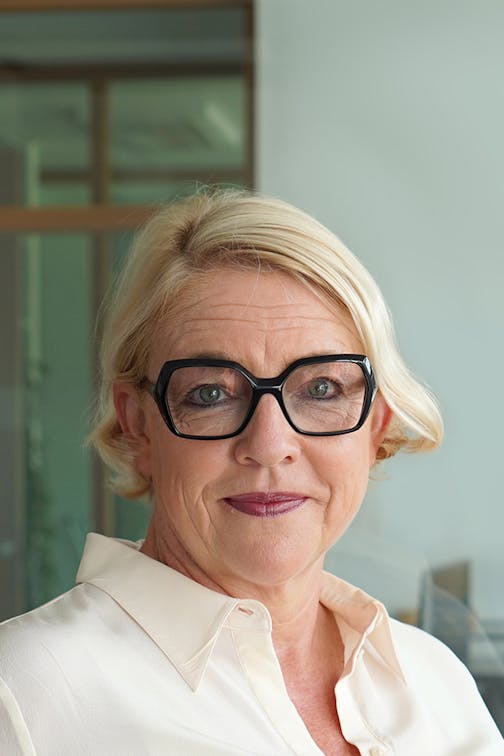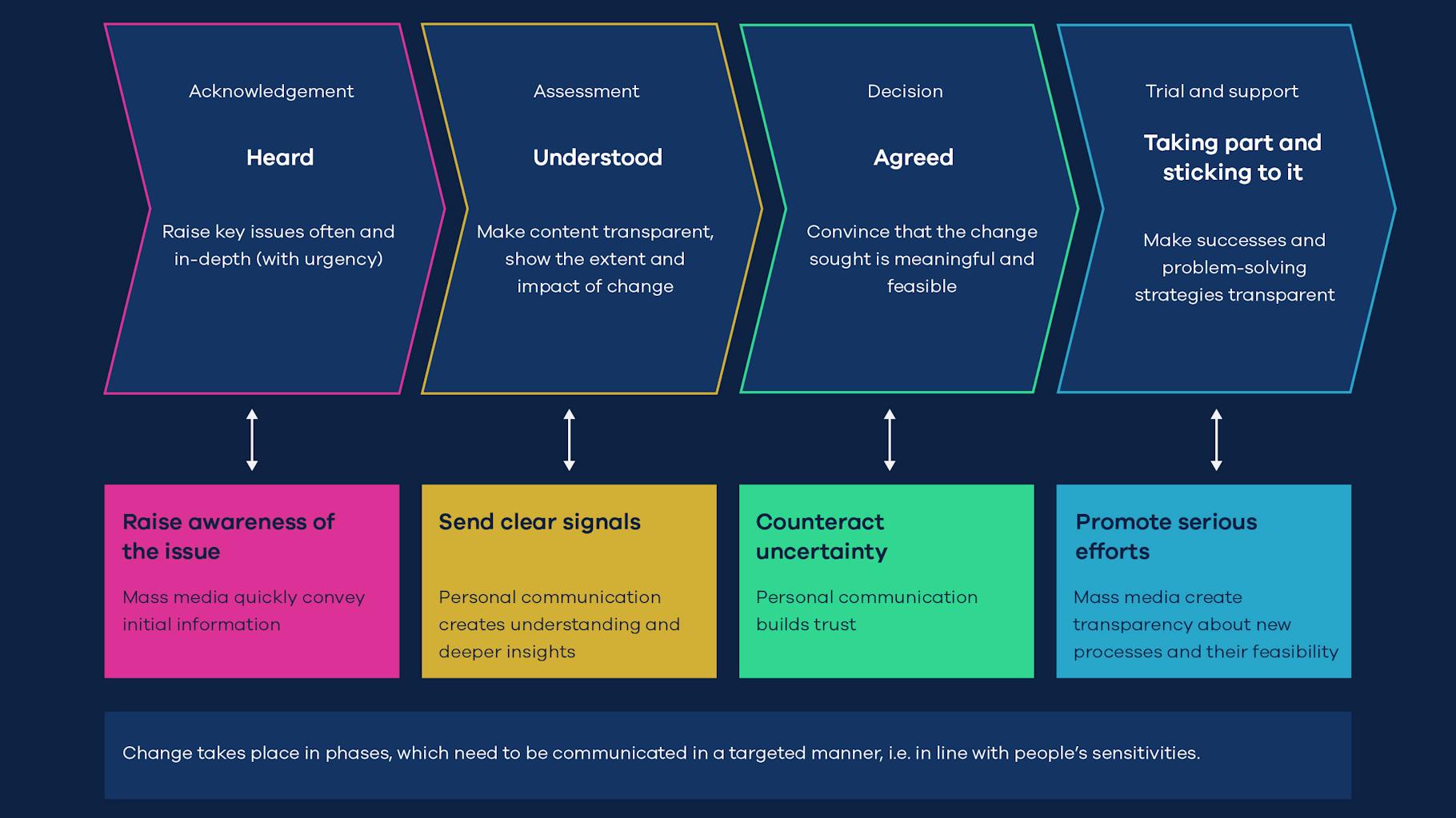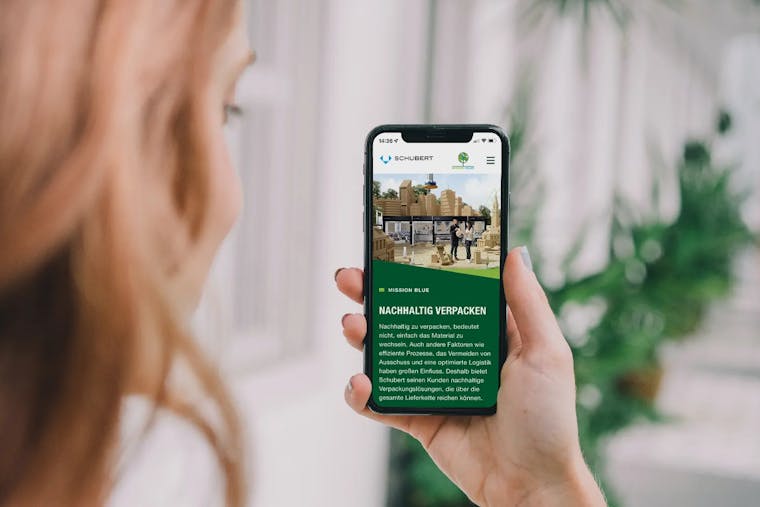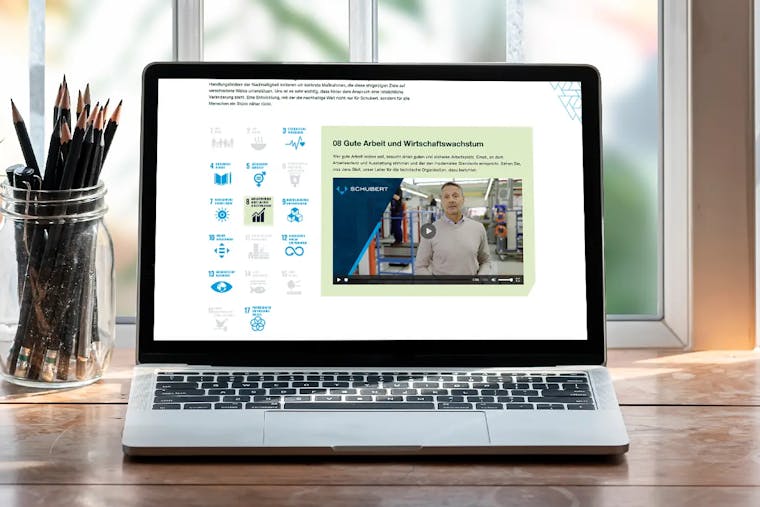Integrated, cross-channel campaigns
Advertising agency for sustainability
Authentic sustainability communication doesn’t revolve exclusively around climate change and environmental issues, it includes all areas of a company. A customised sustainability strategy should be the first step in this direction. Based on this, a sustainability program can be developed with targeted measures in PR and communication across all channels.
This is what we offer as an advertising agency for sustainability. From strategic consulting to the development of a sustainability program to the creation of comprehensive communication measures based on your sustainability strategy.
Your contact

Sustainability makes sense
Countless publications proclaim sustainability initiatives as a panacea for the future viability of companies. Yes, sustainability can be a competitive advantage. But only as long as the right measures are taken. Communications and marketing, including different advertising measures, are decisive for success.
A study carried out by the Institute for Sustainability compiled possible competitive advantages which can be achieved through CSR:
- Building and protecting reputation
- Motivating employees and attracting talent
- Developing new business through new products or opening up new markets
- Strengthening customer relationships and improving investor relations
But CSR alone won’t secure these potential competitive advantages in the long term. Without comprehensive sustainability efforts – implemented holistically within the company – the transformation to a sustainable company cannot succeed.
The financial and personnel costs associated with this transformation need to be offset by economic benefits, which in turn form the basis for further competitive advantages.
Companies need to engage in dialogue with stakeholders
Sustainability communication aims to attract positive attention so that a company’s sustainability performance has the best possible chance of being perceived by the target group. The challenge here is that the content communicated has to stand out from the flood of information out there.
Sustainability communication aims to attract positive attention so that a company’s sustainability performance has the best possible chance of being perceived by the target group. The challenge here is that the content communicated has to stand out from the flood of information out there.
With all this in mind, it is necessary to identify and prioritise the interests and requirements of the stakeholders. And this can only be achieved through dialogue. Dialogue with stakeholders is the prerequisite for the creation and prioritisation of measures.
Stakeholder dialogue is effective when it follows a clear strategy, when results are evaluated in a structured way and key learning is applied.
Ways in which dialogue is created:
- Personal conversation
- Written survey / online surveys
- Focus group interviews
- Complaint management on the website
- Social media
- Workshops with customers
- Public information events
- Open space workshops with staff
- Roundtables with initiatives and associations
The results of the stakeholder survey, once meaningfully evaluated and structured, form the basis of the materiality analysis. This in turn serves as a framework for the content of the overarching sustainability strategy.
Companies need systematic change communication
Companies are undergoing a significant transformation process in response to the increasing expectations of many stakeholders in terms of corporate sustainability. Anchoring sustainability goals in the corporate strategy entails fundamental changes for employees. Internal communication measures to accompany this process and anchor the new strategy in people’s minds are therefore key.
During the transformation process, the following questions should be asked again and again:
- Is our sustainability performance as good as we say it is?
- Where and how do we show that we are good?
- Do our employees feel that we are good?
- Is it clear to our employees why we are doing this?
Internal agenda setting: creating orientation and awareness
Internal corporate communication is tasked with communicating the purpose of all sustainability measures so that employees can recognise and echo what changes the company is going through and why.
The internal sustainability communication measures are manifold. For these measures to be highly effective, the touchpoints in employees’ day-to-day work need to be identified.
Together with our clients, we implement suitable measures for a customised journey. Be it the intranet, touch screens at the HQ’s front desk, branded clothing or a pocket guide.

Source: Grundlagen der Internen Unternehmenskommunikation (EN – Fundamentals of Internal Corporate Communication) / Ulrike Buchholz, Susanne Knorre, 2013.
Corporate identity as a distinguishing factor
In a saturated communications industry, the topic of sustainability has long ceased to be an attention-grabber. On the contrary. Companies are increasingly asking themselves: How do we succeed in standing out from the crowd with our sustainability communication?
The answer is identity. The corporate story is becoming one of the most important differentiators when it comes to communicating your own sustainability efforts internally as well as externally.
As an advertising agency, we implement the following measures across all channels:
- Development of labels and campaign motifs
- Targeted market research
- Media measures tailored to target groups from print to online to social media
- Measurable lead generation
- Hubspot, marketing controlling, analysis
Services:
- Development of a customised campaign
- Logo development
- Campaign development
- Concept development
- Landing pages
- Automated marketing
- Films, animations
- SEO agency
- Media planning by our media agency
Facts establish credibility
With all the accusations of greenwashing, another question keeps cropping up in companies: How can we ensure that we are taken seriously?
As an advertising agency for sustainability, here is our answer to this question:
By making the messages relevant.
Companies should ensure that the content is tailored to the respective target groups and appeals to their interests. Depending on the target group, different topics can be focused on to achieve maximum impact.
By being consistent in the messages.
Consistency communicates determination and credibility while demonstrating that a company has a strategy.
By being authentic with messaging.
It is essential that companies take a critical look at themselves and don’t celebrate their performance as state of the art when it is nothing more than industry standard. Instead, they need to be honest about their progress and challenges.
Consistency, authenticity and relevance are the key cornerstones of successful sustainability communication. Companies that take these principles to heart are not only perceived as credible, but also as responsible business players that make a positive contribution to society and the environment.
We guide our clients towards credible communication with the following measures:
- Authentic interviews
- Meaningful, compelling photographs
- Appealing corporate films
- Honest statements
- Comprehensive insights
The corporate film plays a key role
The film – ranging from a short statement by an expert or an interview with the CEO to open discussion formats and authentic insights behind the scenes all the way to the corporate film – represents the most important discipline of all marketing measures.
It shows what the company does and how it does it and therefore contributes first and foremost to branding. Positive emotions are awakened by appealing to all the audience’s senses. Associations with the company are shaped and the target group begins to identify with the company’s values. In the best case, brand loyalty is created.
Credibility is the decisive currency in sustainability communication. Film is a valuable means of creating trust. The possibility to involve external experts creates a broader perspective and space for discussion. This makes connections clear to the recipient and increases the understanding of facts.
In short: Trust in the company’s statements grows and with it the credibility of the communicated content.
Our expertise as an advertising agency for sustainability

Your contact
20 years of experience in sustainability issues. Sustainability reports, including GRI and DNK, brochures, sustainability websites, films and video streams, moderation. Expertise in mechanical and plant engineering, food, tourism and other industries.




